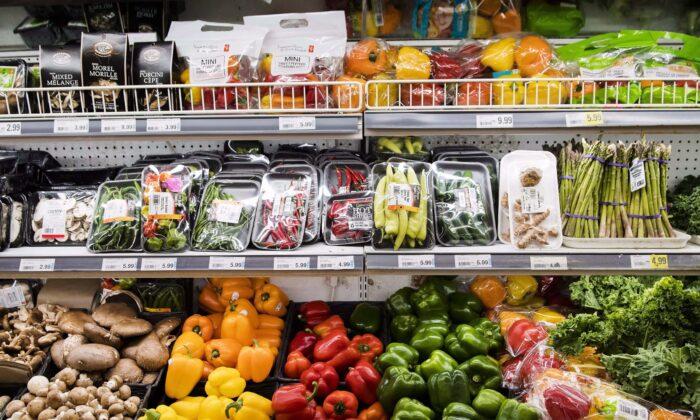Canada’s annual inflation rate slowed to 5.9 percent in January, despite grocery prices rising at an even faster pace last month.
In its consumer price index report released Tuesday, Statistics Canada said the deceleration in headline inflation from 6.3 percent in December reflects a base-year effect.
A base-year effect refers to the impact of price movements from a year ago on the calculation of the year-over-year inflation rate.
Given much of the acceleration in price growth happened in the first half of 2022 as the threat of Russia invading Ukraine turned into a reality, the federal agency said the annual inflation rate will continue to slow in the coming months.
The last time Canada’s annual inflation rate was below six percent was in February 2022 when it was 5.7 percent.
The headline rate came in lower in January than many commercial banks were anticipating in their forecasts, signaling good news for the Bank of Canada.
Last month, the Bank of Canada hiked its key interest rate for the eighth consecutive time since March 2022, bringing it from near zero to 4.5 percent. That’s the highest it’s been since 2007. At the time, the central bank said it would take a “conditional” pause to assess the effects of higher interest rates on the economy.
In a client note, BMO’s chief economist Douglas Porter said the positive surprise was “clearly a big step in the right direction.”
“Overall, this milder report will provide the (Bank of Canada) with some comfort on their decision to move to a conditional pause,” Porter said.
But Canadians experienced no slowdown in the cost of groceries last month as prices rose faster on a year-over-year basis.
Grocery prices were up 11.4 percent compared with a year ago, marking an acceleration from 11 percent in December. The federal agency said prices for meat, bakery goods, and vegetables all rose faster.
On a monthly basis, higher gasoline prices in January drove the overall price level higher compared with December. The federal agency said the consumer price index rose 0.5 percent in January after declining by 0.6 percent a month prior.
Meanwhile, consumers paid less for cellular services in January compared with a year ago as Boxing Day deals extended into last month.
The prices for passenger vehicles also slowed on a yearly basis, partly reflecting base-year effects, given the availability of vehicles was impacted by supply chain problems a year ago.





